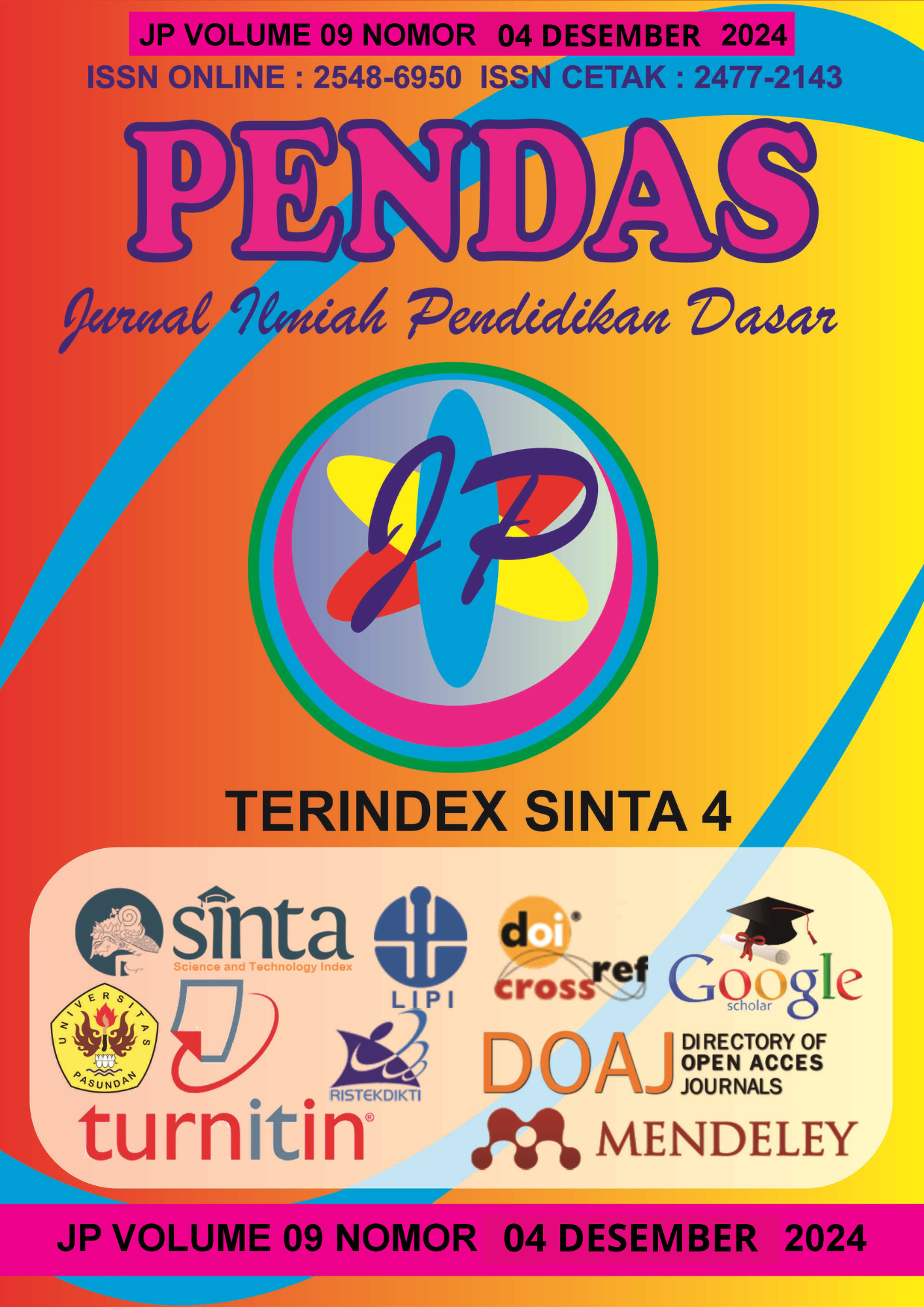PENGARUH PENGGUNAAN METODE READING WORKSHOP, SQ4R, DAN MOTIVASI BERPRESTASI TERHADAP KEMAMPUAN LITERASI PESERTA DIDIK SEKOLAH DASAR DI SURABAYA
DOI:
https://doi.org/10.23969/jp.v9i04.19426Keywords:
literacy skill, Reading workshop, Achievement motivationAbstract
This study investigates the effects of the Reading Workshop and SQ4R methods, along with achievement motivation, on the literacy skills of elementary school students in Surabaya. Using a quantitative quasi-experimental design, 189 students were divided into two groups: one employing the Reading Workshop method (92 participants) and the other using SQ4R (97 participants). Data were collected through literacy tests administered at pretest and posttest stages, with average scores increasing from 65.40 (pretest) to 73.47 (posttest). Achievement motivation was also measured to assess its impact on literacy.Results revealed significant differences in literacy improvement between the methods, with Reading Workshop showing superior effectiveness (F = 66.328, p < 0.001). Additionally, students with high achievement motivation demonstrated better literacy outcomes compared to those with low motivation (F = 196.627, p < 0.001). However, no significant interaction was found between the teaching methods and achievement motivation regarding literacy skills (F = 0.163, p = 0.687). The study concludes that while both methods are beneficial, achievement motivation is a more critical factor in enhancing literacy skills. It is recommended that educators focus on increasing students' motivation alongside implementing these methods and suggests further research into various teaching strategies and their long-term effects on literacy development.
Downloads
References
Alvermann, D. E., Gillis, V. R., & Phelps, S. F. (2020). Content area reading and literacy: Succeeding in today’s diverse classrooms. Pearson.
Creswell, J.W. (2014) Research Design: Qualitative, Quantitative, and Mixed Methods Approaches. 4th ed. Thousand Oaks, CA: SAGE Publications.
Ginting, S., Aminah, & Swondo, E. (2024). Peningkatan kemampuan memahami bacaan melalui metode SQ4R. Jurnal Pendidikan, 12(2), 298-310.
Guthrie, J. T., Wigfield, A., & You, W. (2018). Motivating adolescents to read: The critical role of instructional practices. Educational Psychologist, 53(2), 1-15.
Hidayati, D., et al. (2024). Pengaruh budaya membaca terhadap literasi siswa. Jurnal Pendidikan Indonesia, 10(1), 80-98.
McEwan, E. K. (2019). The principal’s guide to raising reading achievement. Corwin Press.
Rahmad, Y. (2020). Pengaruh motivasi berprestasi terhadap hasil belajar peserta didik. Jurnal Ilmu Pendidikan, 14(3), 196-210.
Riasnugrahani, M. (2021). Literasi sebagai fondasi pendidikan: Sebuah tinjauan teoretis. Jurnal Pendidikan Literasi, 5(1), 33-40.
Ryan, R. M., & Deci, E. L. (2017). Self-determination theory: Basic psychological needs in motivation, development, and wellness. Guilford Press.
Rufi’i, Rohman, dan Harwanto. 2024. Buku Pedoman Penulisan Tesis Sekolah PAscasrajana Universitas PGRI Adi Buana Surabaya. Surabaya:Unipa Surabaya Tonekaboni, S. (2020). Reading workshop as a tool to improve students' literacy skills. Journal of Reading Research, 18(4), 355-371.
Wiarsana, M. (2020). Pengaruh motivasi berprestasi terhadap literasi sains peserta didik. Jurnal Pendidikan Sains, 12(1), 109-120.
Wigfield, A., Gladstone, J. R., & Turci, L. (2021). Achievement motivation and literacy: Individual differences in literacy development. Educational Psychology Review, 33(1), 49-72.
Downloads
Published
Issue
Section
License
Copyright (c) 2024 Pendas : Jurnal Ilmiah Pendidikan Dasar

This work is licensed under a Creative Commons Attribution 4.0 International License.














































